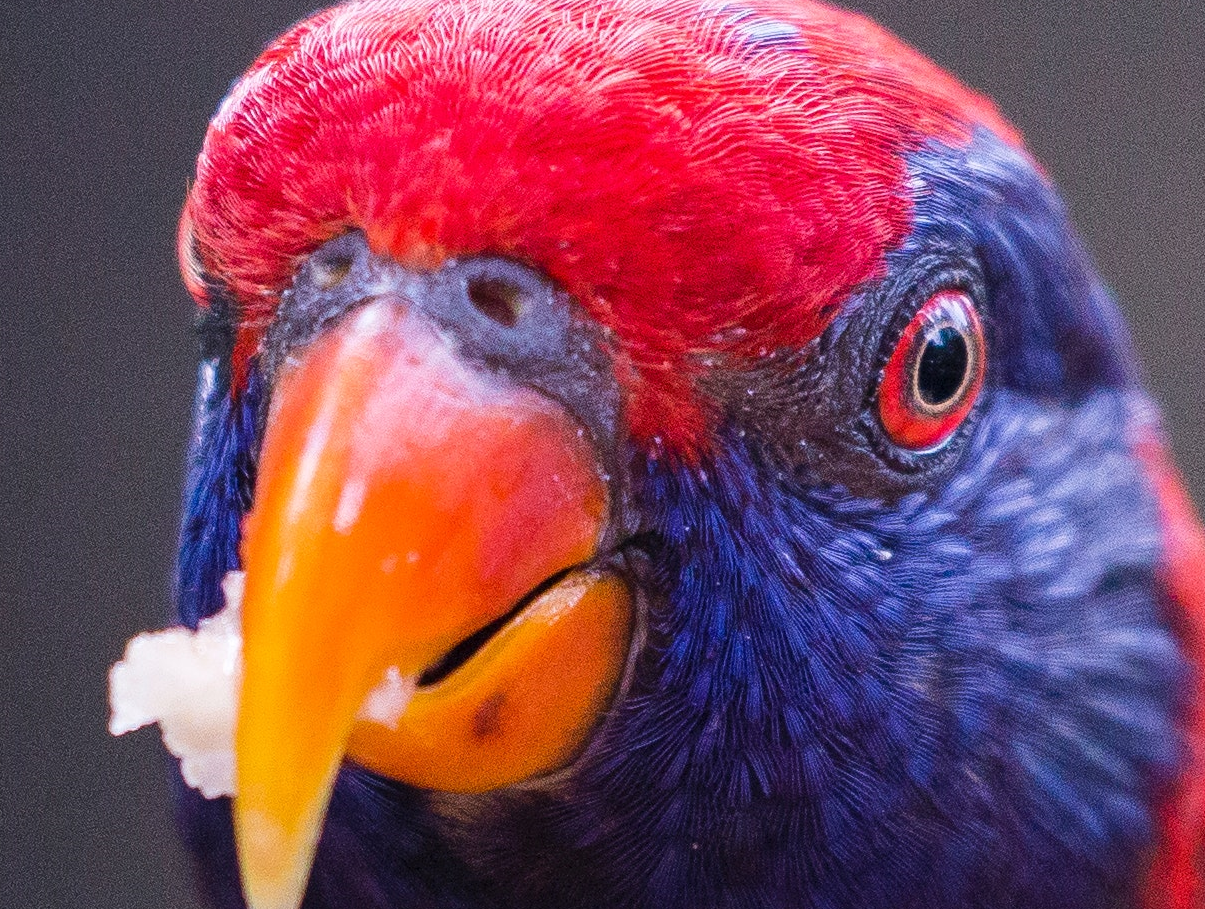Feed Your Bird Right
While each parrot species has individual nutritional requirements, our Parrot Food Pyramid offers a general guide to make sure that what you feed your pet parrot is nutritious and offers it a great quality of life. Of course, if your bird has any health issue, please always consult your avian vet for specific dietary recommendations.
Pellets
The mainstay of your parrots diet should consist of premium parrot pellets. Stick with a well know, vet recommended brand. The most sought after brands include Harrison's Bird Food, Roudybush and Zupreem. These brands have put millions of dollars into scientific parrot specific research. These extruded mix a nutritional punch in every bite.
The best brands are available via your avian veterinarian or through premium bird supplies websites. Try to refrain from purchasing your pellets at big box stores. Imagine the quantities that they need to buy. Tons! So, to maintain shelf life, these diets often use a lot of synthetic preservatives which are not good for birds, especially Eclectus parrots. The latest research is showing us that synthetic preservatives, vitamins and minerals aren’t good for birds. Nor are dyes or other unnatural additives. Organic diets are best. Brands like Harrison’s & Roudybush are scientifically based bird diets that should comprise of about 50-60% of your birds daily food intake.

Fresh Sprouts Pack a Dietary Punch
Fresh sprouts are really a parrot super food and properly made sprouts are one of the best ways to insure that your parrot has a natural, healthy diet. Many avian nutrition experts recommend that about 20% of your birds dietary intake should be sprouts. According to experts at Bird Channel sprouts “contain digestible energy, vitamins A, C, E, B, minerals, amino acids, proteins, antioxidants and phytochemicals, which have protective and disease preventative properties.” Learn how to make bird sprouts here.
Choose fresh organic seeds such as : Adzuki Beans, Mung Beans, Millet, Buckwheat (in hull), Green Peas, Speckled Peas, Bill Jump Peas and Yellow Peas, Green Lentils, Crimson Lentils, French Blue Lentils, Black Lentils, Pardina Lentils, Orange Lentils, and Yellow Lentils, Black Garbanzos and Small Beige Garbanzos,Fenugreek, Alfalfa, Red Clover, Oriental Mustard, Daikon and China Rose Radish, Quinoa,Amaranth, Chia, and Almonds (shelled).
Fresh Fruits & Veggies
When it comes to feeding fruits and veggies, variety is the key. Keep in mind that as a rule of thumb, the darker the fresh food item, the more nutritious it is. Many experts in avian nutrition actually recommend that you make a “chop” of a huge variety of fruits, veggies, sprouts, legumes, etc. The idea behind chop is that all of the pieces are finely chopped, helping to insure that a picky bird eats a variety of produce. Always remember that cleanliness is critical. Wash all fruits & veggies (even rinse sprouts well) to remove bacteria, pesticides and other contaminants. And, remove fresh foods after a couple of hours as it will begin to harvest bad bacteria.
Table Foods
While you don’t have to go nuts here, healthy table foods offer both nutritional and emotional benefits. Flock animals eat together and you are your birds flock. So, pull up a perch and give Polly a plate! Refrain from under-cooked meats, gravies and sauces that have high salt and fat content and junk food. But, a teaspoon of what’s for dinner is a good thing.
Seeds
Seeds should be reserved only for use as treats and training for most species of birds. Fat packed seeds tend to have limited nutritional value. If you’ve got a seed-junkie, you’ll want to turn that around. More parrots die from malnutrition from a seed based diet than any other cause. The most significant problems are calcium deficiency and low Vitamin A.
Feeding your parrot right is good for it’s mind, body and soul. When you know what to feed your pet parrot, it’s amazing how proper nutrition affects a birds emotional health and feather health. Take the time to help you parrot feel its best by following our simple Parrot Food Pyramid.
What to Feed Your Pet Parrot Video















